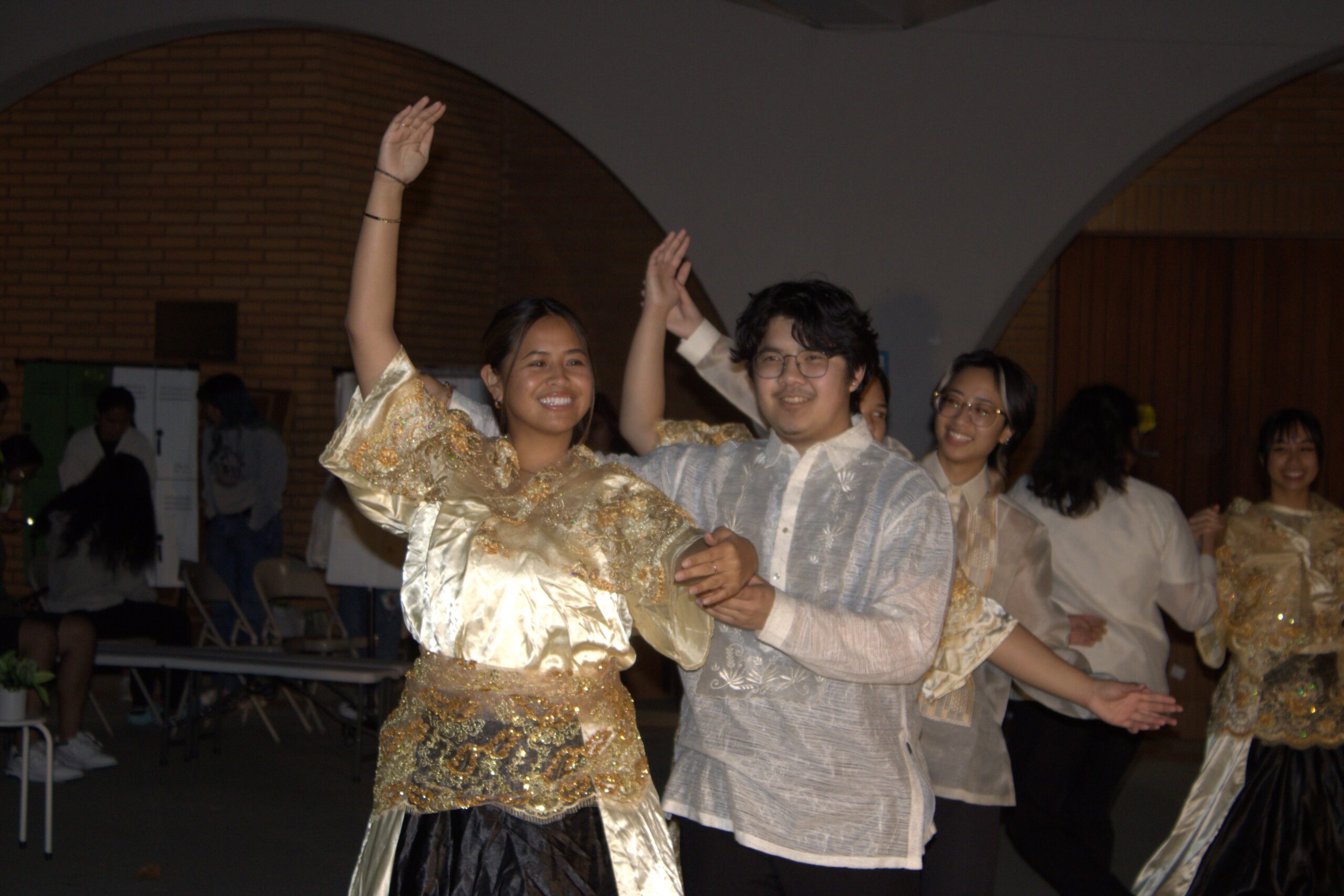
Katipunan Pilipino Student Organization (PSO) is one of University of California Riverside’s major cultural student organizations. The club “aims to enrich the understanding and appreciation of Filipino culture.” Open to everyone of any background to join, Katipunan raises awareness about the culture, while also building a community among UCR students. The club holds events such as general meetings, socials, cultural showcases, intramural games and more. Among their plethora of events that uphold the mission, is their biggest and most anticipated Pilipino American Cultural Night (PACN). In its 35th year of holding the cultural night, this year’s cast of actors, dancers, singers and backstage crew have been tirelessly working to ensure a night to remember. Held for one night only, PACN will be on April 27 at the University Theater by Olmstead.
PACN is a long-running tradition for the organization where members can join and showcase their talents while also presenting the Pilipino American culture. In 2020, the cultural night changed its title from Pilipino Cultural Night to Pilipino American Cultural Night to “better reflect the current members of the organization along with the position [they] hold as an American University.” Featuring an array of cultural dance suites such as Maria Clara, Rural, Tinikling, Filipino Martial Arts and Moden, the night is sure to be full of impressive performances. Intertwined with the various dances is a play titled “Stardust.” Also mixed in with the play is music and songs sung by the play’s cast along with a choir joining in.
“Stardust” written by fourth-year PACN Coordinator Karissa Lagunte, alongside acting coaches Makena Sapida and Leonardo Gardia and the creative team, explores the intergenerational relationships in Filipino-American families as well as liberation and following your own path. When asked about the play, Lagunte raved about how “the story means a lot to [her] … as it is the first PACN in Katipunan’s history where the main characters are queer and where queer themes have actually been explored.”
The play follows the eldest daughter, Faith (Ren Fang) who is the epitome of a perfect daughter — a studious, aspiring lawyer and churchgoer. However, her life turns upside down when Tala (Arei Estrada), a girl who is just as bright, transfers to her school. The two become academic rivals until they get assigned to a project together, making Faith realize there might be feelings underneath the spite she feels for her. As Faith battles her sexuality, she turns to the stars for help. Meanwhile, Faith’s mother, Abigail (Klarisse Dayrit) is facing emotional and financial turmoil fresh from a divorce while also being financially abused and manipulated by her parents in the Philippines. As her daughter is coming to terms with her sexuality, Abigail is set on breaking free from her restraints and living the life she has always wanted.
Held at Olmstead, the practices run from 8 p.m. until midnight and occur every day as PACN quickly approaches. At the beginning of practices, the cast members stretch out for the day’s practice and start their motivation chant. The chant has three levels increasing in volume to get them hyped for the night of practice. After stretches, they do some basic dance moves to warm up and prepare for their respective dances. Once this has concluded, in select practices, groups go into circles and engage in increasing levels of deep and meaningful talks to manage their mental health and get to know one another. Following their circles, they begin practice for their cultural night.
The Maria Clara suite is a blend of Spanish courtship and European dances. Fourth-year Dance Director Janessa Zamora described it as “flirtatious and romantic.” The suite has two subsets for PACN this year, Imunan and Pampilpilalcan. The Rural suite represents the festive lives and spirit of the Filipino people through lively music, bright colors and big smiles. These dances are common after a good harvest or in fiestas. Filipino Martial Arts features an array of fighting styles originating from the Philippines. Using traditional weapons-based combat such as sticks, knives and other bladed tools or unarmed techniques, the suite highlights the fluidity, tactical versatility and art in the fighting styles. The Modern suite breaks away from the rest of the traditional Filipino cultural dances. Similar to hip-hop dance, the suite aims to showcase how people express themselves today paired with songs featuring Filipino artists or producers.
One of the most-anticipated dances for PACN is the national dance of the Philippines, Tinikling. The captivating Filipino folk dance involves bamboo poles sliding and tapping together and to the ground to a beat. Simultaneously, dancers use their graceful footwork and rhythm to navigate through the poles quickly. The practices for the dance are different and more demanding compared to the others, except for those acting in the play. Tinikling runs a bit of cardio every day and the club even has a tradition of running across half of campus and doing exercises up the hill at the Student Recreation Center to prepare for the endurance. When asked about handling the pressure of the dance, third-year Tinikling coach Alex Taberna explained the coaches’ use of daily practice itineraries for the team to work on while also encouraging “everyone [to] work on their academics first, but also prioritize the dance during practice.”
Entirely run by the students, PACN exemplifies the dedication of its board and cast members. Among the board include coaches and directors motivated to ensure the preparation leading up to the big night happens seamlessly while working with the rest of the cast members to practice for the play or dance suites. The many layers of PACN from those behind the scenes to those on stage are numerous, demonstrating the commitment the organization has to their culture. Beyond the actors and dancers in the frontlines, much of the backstage crew such as the stage crew, media team, directors and coaches put in a lot of work to uplift everyone in preparation for PACN.
Despite the long nights of consecutive rehearsals, the cast manages to maintain high energy. Cheering on each other when they are up on stage, they hype each other up to keep up the good vibes and momentum. However, some also remain on the sidelines to get their class assignments done, keeping up with balancing PACN and school work. Keeping up with both school and PACN, the cast members ensure they stay on top of tasks and work hard to put on a good show when the big night comes.
After so many practices, this year’s PACN is ready for its big night to show off its talents and showcase the Pilipino-American culture. Their hard work will finally be showcased to audiences on April 27, 2024 at the University Theater.








